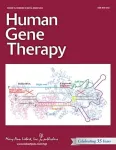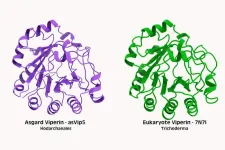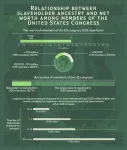New Rochelle, NY, August 21, 2024—Researchers from the University of Pennsylvania, Perelman School of Medicine, Gene Therapy Program, and Moderna, have shown that repeated administration of lipid nanoparticle-encapsulated mRNA therapy significantly extended survival and reduced serum leucine levels in a mouse model of maple syrup urine disease (MSUD). Click here to read the article now.
The researchers, led by James Wilson, M.D., Ph.D., from the University of Pennsylvania, Perelman School of Medicine, evaluated a lipid nanoparticle-based treatment approach to address all possible genetic mutations that can cause MSUD.
“Repeated intravenous delivery of lipid nanoparticle-encapsulated mRNAs encoding hBCKDHA, hBCKDHB, and hDBT increased survival and body weight, and decreased serum leucine levels in a hypomorphic MSUD mouse model that survives until weaning without clinical intervention,” stated the investigators. “Repeated administration of LNP-encapsulated mRNAs may represent a potential long-term universal treatment approach for MSUD.”
In another new study emerging from Dr. Wilson’s laboratory, researchers identified a novel family of adeno-associated virus (AAV) variants with desirable biodistribution properties that may be useful for targeting tissues other than the liver, such as the heart. To improve the safety and cost of AAV gene therapy, capsid engineering efforts are aimed at redirecting in vivo AAV biodistribution away from the liver toward disease-relevant peripheral organs. One newly identified variant exhibited a six-fold reduction in liver RNA expression and a ten-fold increase in cardiac RNA expression compared with wild-type AAV9 in the mouse.
“The first of the two studies from the Wilson laboratory demonstrates correction of one of the classical inborn errors of metabolism, MSUD, a disease which can be caused by any of several different genes encoding the components of a multi-subunit enzyme complex responsible for degrading branched-chain amino acids,” says Editor in Chief Terence R. Flotte, MD, Celia and Isaac Haidak Professor of Medical Education and Dean, Provost, and Executive Deputy Chancellor, University of Massachusetts Medical School. “The other paper from the Wilson lab represents an important advance in AAV capsid engineering to deliver genes more selectively to the heart while decreasing exposure of the liver, thus making the vector safer.”
About the Journal
Human Gene Therapy, the Official Journal of the European Society of Gene and Cell Therapy, and eight other international gene therapy societies, was the first peer-reviewed journal in the field and provides all-inclusive access to the critical pillars of human gene therapy: research, methods, and clinical applications. The Journal is led by Editor-in-Chief Terence R. Flotte, MD, Celia and Isaac Haidak Professor of Medical Education and Dean, Provost, and Executive Deputy Chancellor, University of Massachusetts Medical School, and an esteemed international editorial board. Human Gene Therapy is available in print and online. Complete tables of contents and a sample issue are available on the Human Gene Therapy website.
About the Publisher
Mary Ann Liebert, Inc. is a global media company dedicated to creating, curating, and delivering impactful peer-reviewed research and authoritative content services to advance the fields of biotechnology and the life sciences, specialized clinical medicine, and public health and policy. For complete information, please visit the Mary Ann Liebert, Inc. website.
END
Lipid nanoparticle mRNA therapy improves survival in mouse models of maple syrup urine disease
2024-08-21
(Press-News.org)
ELSE PRESS RELEASES FROM THIS DATE:
USAMMDA commercial partner receives FDA emergency use authorization for plasma powder
2024-08-21
A U.S. Army Medical Materiel Development Activity commercial partner received Emergency Use Authorization from the U.S. Food and Drug Administration for the Department of Defense to use octaplasLG Powder—a potentially lifesaving treatment option for blood replacement therapies in certain operational circumstances. Notice of the EUA for this product was received by the company, Octapharma USA, on Aug. 8, 2024.
USAMMDA’s Warfighter Protection and Acute Care Project Management Office, which has a Cooperative Research and Development Agreement with Octapharma USA, manages research and development efforts for several ...
Pennington Biomedical study to explore effects of soy on blood sugar levels
2024-08-21
Pennington Biomedical Research Center’s Dr. Candida Rebello wants to know more about the intersection of blood sugar levels and a diet rich in soy. This intersection is the primary focus of her new study, “Lifestyle Intervention for Improving Metabolic and Motivational Outcomes,” or MOTIVATE, which explores how specific diets can impact blood sugar, and potentially improve mood and energy levels.
When soy seeds are cut, they produce the anti-microbial compound known as glyceollin, which has been shown to improve insulin sensitivity and cognition. The cut soy seeds will be milled into flour and will be included in the diets of some of the participants. The MOTIVATE ...
Giving an antibiotic to all children under 5 in Africa saves lives
2024-08-21
When UC San Francisco research showed that routinely treating children in Sub-Saharan Africa with a common antibiotic could reduce deaths in children under five, the World Health Organization (WHO) moved quickly to recommend the treatment – but only for infants between 1 and 11 months old.
Now, UCSF researchers have shown that treating babies is not enough. The antibiotic must be given to all children up to 5 years old to realize its full benefit, which is considerable: It lowers child mortality ...
Pivotal study supports belzutifan approval for patients with advanced kidney cancer
2024-08-21
RESEARCH SUMMARY
Study Title: Belzutifan Versus Everolimus for Advanced Renal-Cell Carcinoma
Publication: New England Journal of Medicine, August 22, 2024
Dana-Farber Cancer Institute authors: Toni K. Choueiri, MD
Summary: The LITESPARK-005 phase 3 clinical enrolled 746 patients with metastatic clear cell renal cell carcinoma (ccRCC) who had progressed after treatment with both an immune checkpoint inhibitor (ICI) and an anti-angiogenic therapy. Patients were randomized to receive treatment with either belzutifan, a HIF-2α inhibitor, or everolimus. Overabundant HIF-2α is associated with increased cancer-driving activity. At the second interim analysis of this study, ...
Next time you beat a virus, thank your microbial ancestors
2024-08-21
When you get infected with a virus, some of the first weapons your body deploys to fight it were passed down to us from our microbial ancestors billions of years ago. According to new research from The University of Texas at Austin, two key elements of our innate immune system came from a group of microbes called Asgard archaea.
Specifically, viperins and argonautes, two proteins that are known to play important roles in the immune systems of all complex life — from insects to plants to humans — came from the Asgard archaea. Versions of these defense proteins are also present in bacteria, but the versions in complex life forms are ...
Two UCSB professors selected by the Gordon and Betty Moore Foundation to be Experimental Physics Investigators
2024-08-21
(Santa Barbara, Calif.) — UC Santa Barbara professors Andrew Jayich and Jon Schuller have been selected by the Gordon and Betty Moore Foundation to be part of the 2024 cohort of Experimental Physics Investigators. They join 17 other mid-career researchers from around the country, each receiving a five-year, $1.25 million grant to pursue research goals.
“This initiative is designed to support novel and potentially high-payoff projects that will advance the field of physics but might be hard to fund through traditional funding sources,” said Theodore ...
Study of pythons could lead to new therapies for heart disease, other illnesses
2024-08-21
In the first 24 hours after a python devours its massive prey, its heart grows 25%, its cardiac tissue softens dramatically, and the organ squeezes harder and harder to more than double its pulse. Meanwhile, a vast collection of specialized genes kicks into action to help boost the snake’s metabolism fortyfold. Two weeks later, after its feast has been digested, all systems return to normal—its heart remaining just slightly larger, and even stronger, than before.
This extraordinary process, described by CU Boulder researchers this week in the journal PNAS, could ultimately inspire novel treatments for a common human heart condition called cardiac fibrosis, in which ...
Study finds no link between migraine and Parkinson’s disease
2024-08-21
EMBARGOED FOR RELEASE UNTIL 4 P.M. ET, WEDNESDAY, AUGUST 21, 2024
MINNEAPOLIS – Contrary to previous research, a new study of female participants finds no link between migraine and the risk of developing Parkinson’s disease. The study is published in the August 21, 2024, online issue of Neurology®, the medical journal of the American Academy of Neurology.
“These results are reassuring for women who have migraine, which itself causes many burdens, that they don’t have to worry about an increased risk ...
How personality traits might interact to affect self-control
2024-08-21
Neuroticism may moderate the relationship between certain personality traits and self-control, and the interaction effects appear to differ by the type of self-control, according to a study published August 21, 2024 in the open-access journal PLOS ONE by Fredrik Nilsen from the University of Oslo and the Norwegian Defence University, Norway, and colleagues.
Self-control is important for mental and physical health, and certain personality traits are linked to the trait. Previous studies suggest that conscientiousness and extraversion enhance self-control, whereas neuroticism hampers it. However, the link between personality ...
US Congress members’ wealth statistically linked with ancestors’ slaveholding practices
2024-08-21
Per a new study, as of April 2021, US Congress members whose ancestors enslaved 16 or more people had a net worth that was five times higher than that of legislators whose ancestors did not have slaves. Neil Sehgal of the University of Pennsylvania, US, and Ashwini Sehgal of Case Western Reserve University, US present these findings in the open-access journal PLOS ONE on August 21, 2024.
Prior research has linked slavery’s intergenerational effects to contemporary inequality, poverty, education, voting behavior, and life expectancy in the US However, the extent to which past slavery in the US contributes to today’s social and economic conditions remains ...





